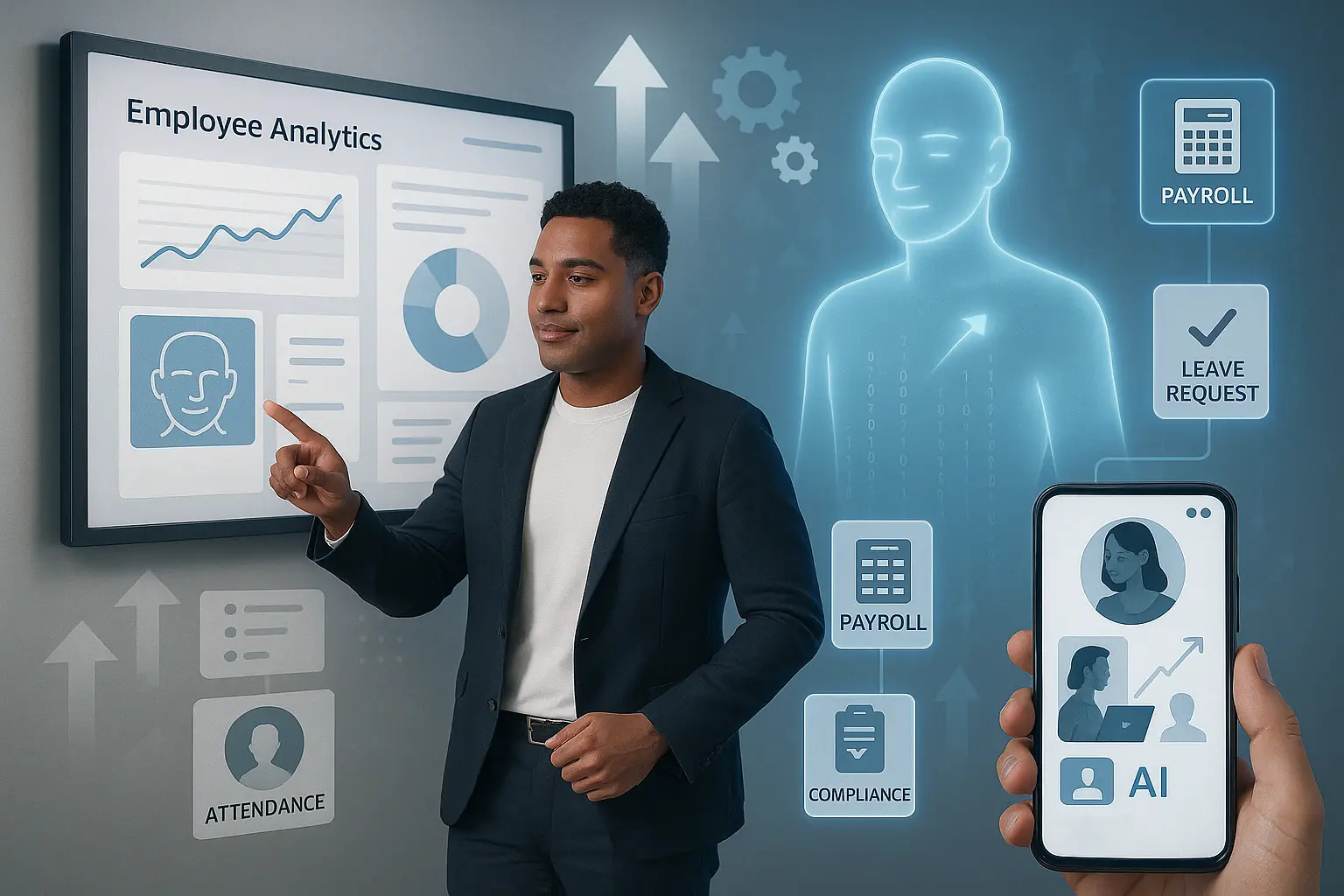
AI in HR Isn’t Replacing Jobs, It’s Redefining Them. Here’s How.
In recent years, artificial intelligence has made its way into almost every industry, and HR is no exception. As companies grow and adapt to changing workforce dynamics, AI is becoming a powerful tool for streamlining HR operations, improving accuracy, and freeing up time for more strategic work. But despite its increasing presence, one thing needs to be made clear: AI isn’t here to replace HR professionals, it's here to help them work smarter.
This article explores how AI is reshaping the role of HR, not by eliminating jobs, but by redefining responsibilities and enhancing human potential. We’ll take a closer look at what AI really does in HR, the myths surrounding job displacement, and how companies, especially growing teams and MSMEs can benefit from this technology.
1. The Myth of Job Loss: Why HR Professionals Are Still Essential
There’s a common fear that AI and automation could replace human employees, specifically those with administrative or process-oriented jobs such as HR. But that's not the case. AI does not substitute for the emotional intelligence, cultural competence, or interpersonal skills that HR individuals can provide. Rather, it assists them by performing repetitive, rule-based activities. Imagine AI as the sleepless assistant who takes care of the fundamentals so HR groups can spend their time on people, not paperwork.
2. Automating the Boring Stuff: What AI Really Handles
Most HR departments waste a disproportionate amount of time on manual tasks such as marking attendance sheets, counting payroll, monitoring leave records, or processing expense claims. These activities are necessary but tend to leave little space for significant activities such as employee engagement, strategic recruitment, or performance management.This is where AI-powered tools like Humanec AI come in. For Example, Humanec AI provides intelligent automation for attendance tracking, payroll calculation, and leave accruals based on real-time data. It minimizes errors, does away with back-and-forth emails, and maintains company policy compliance without additional effort. By automating the "busy work," HR professionals reclaim their time and sanity.
3. Giving HR Time to Focus on People, Not Paper
When automation takes care of the drudge work, HR can focus on more meaningful activities: knowing what employees need, enhancing the work environment, helping with leadership development, and enabling workforce planning to meet business objectives. Using tools such as Humanec's employee self-service portal, even mundane activities like downloading payslips, requesting leave, or changing personal details no longer require HR's manual intervention. This not only enables employees to own their data but also enables HR to transition into a more consultative and strategic function. Rather than responding to problems, HR can become proactive, facilitating long-term business success and employee engagement.
4. Smarter Decision-Making with Real-Time Insights
One of the most beneficial aspects of AI is its capacity to produce actionable insights. HR leaders no longer have to wait for month-end reports and instead can see real-time dashboards on trends across attendance, employee performance, overtime, and so forth. This enables better workforce planning, shift planning, and even team restructuring when the need arises. AI software gathers and structures this information automatically, something that would take days to accomplish by hand. It allows HR executives to have the complete picture before they make a decision, resulting in more informed and confident decisions.
5. Building a More Inclusive and Bias-Free Hiring Process
AI can also help tackle bias in recruitment. By analyzing large volumes of data objectively, AI systems minimize unconscious bias being exerted on screening resumes or performance reviews. This enables businesses to pay greater attention to a candidate's true talents and promise, instead of being prejudiced by name, age, or background. It does not imply that HR should outsource all the hiring decisions to machines but can aid in more equitable, evidence-based shortlisting and judging processes. The final decision is still human, but with improved inputs.
6. HR and AI: A Partnership That Drives Growth
For small and mid-sized companies, especially MSMEs, expanding HR operations often feels overwhelming. Hiring more staff to manage a growing workforce isn't always an option. This is where AI tools like Humanec AI offer serious value. They bring enterprise-level automation and analytics to small teams without the need for a large HR department.
Whether it’s managing remote employee attendance, tracking field staff, or generating payroll reports, smart systems ensure nothing gets missed and that the existing HR team can scale without burnout. With tools designed specifically for the needs of growing businesses, AI helps level the playing field.






